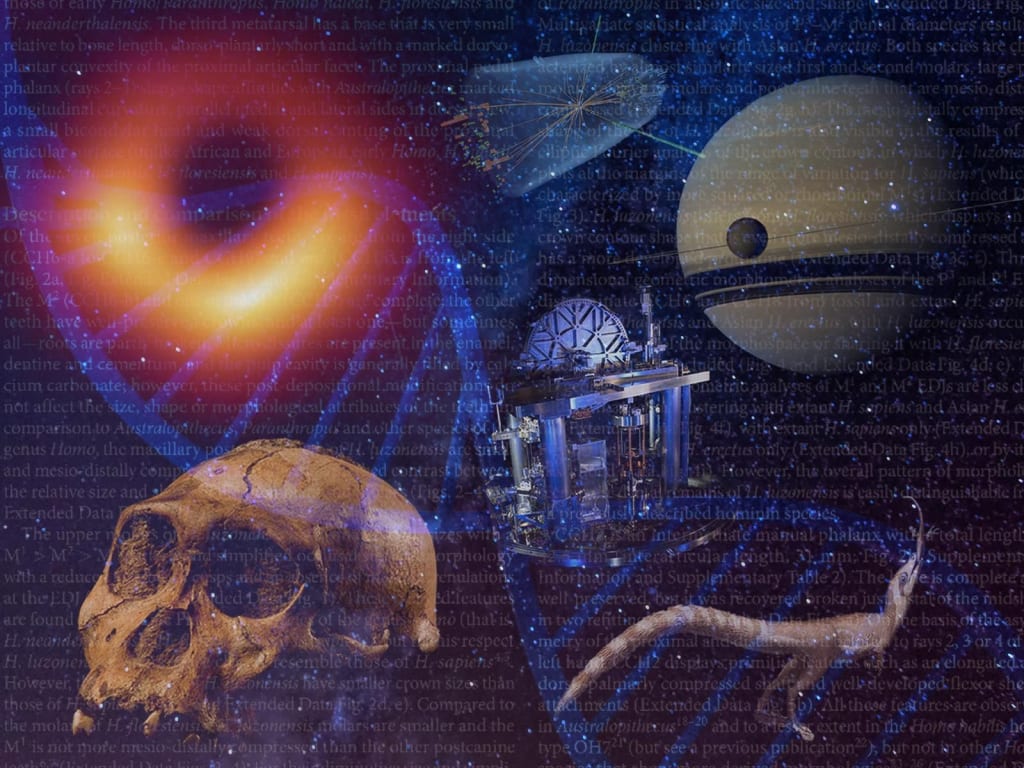Amazing Scientific Discoveries Of The Decade
Unveiling the Marvels: A Decade of Astonishing Scientific Breakthroughs

The last decade was filled with significant scientific discoveries across all disciplines. Researchers tested hypotheses, found proof, and visited new places that expanded our understanding of the universe. We made progress in addressing one of the greatest challenges humanity has faced. We also gained valuable insights into some of the most destructive objects in existence. Let's explore five incredible discoveries from the 2000s.
In 2006, Pluto was downgraded from a planet. However, in 2015, the New Horizons spacecraft reached Pluto. It found glaciers, ice mountains, and a frozen sea of nitrogen. The ice moves slowly due to pressure and heat, creating unique surface structures. This discovery changed our understanding of dwarf planets. In 2012, the Higgs boson, or "god particle," was discovered at the Large Hadron Collider in CERN after a costly construction process.
In 2009, a significant shift occurred in humanity's understanding of the cosmos. For millennia, our gaze had been drawn to the heavens, pondering the mysteries of celestial bodies. As technology advanced, revealing myriad stars dotting the expanse of space and unveiling the planets within our own solar system, a fundamental question lingered: How prevalent are planets orbiting other stars? This age-old inquiry found resolution with the advent of Kepler. Launched in 2009, the Kepler mission revolutionized our comprehension of the universe, enabling the detection of exoplanets with unprecedented precision. For the first time in history, humanity gained insight into the frequency of planetary systems encircling distant stars, opening new vistas of exploration and understanding in the realm of astronomy.
Since the deployment of the inaugural Kepler probe, which scrutinized distant stars and gauged their luminosity fluctuations, a remarkable revelation has unfolded. These luminosity variations serve as indicators of potential orbiting objects, yielding astonishing findings. By the close of the preceding decade, over 4,055 exoplanets had been cataloged, a few of which offer tantalizing prospects for habitability. This tally is poised to swell further as we embark upon a new era. With each observation, the semblance of our own solar system's prevalence grows, igniting speculation about the boundless discoveries awaiting us beyond.
On a different front, the Earth's climate has undergone tumultuous shifts throughout its history, oscillating between extremes of heat and cold. Yet, the contemporary epoch distinguishes itself by the profound impact of human activity on global climate dynamics. This realization crystallized with unprecedented clarity in the preceding decade. The ramifications of our actions on the planet's ecological balance have become increasingly apparent. In 2012 alone, Greenland shed 400 billion tons of ice, while Antarctica relinquished over 252 billion tons annually—a stark testament to the accelerating pace of environmental change spurred by human intervention.
Throughout the decade, the escalation in ice loss has been staggering, nearly sextupling the quantities relinquished just three decades prior. Projections indicate a daunting trajectory: by 2100, global sea levels are poised to surge by three feet. Such a surge imperils the habitats and livelihoods of at least 630 million individuals. Yet, the repercussions extend far beyond, with human activity precipitating a crisis of biodiversity. Forty percent of amphibian species, over 33% of marine mammals, and 10% of insect species teeter on the brink of extinction—a distressing testament to the deteriorating state of our biosphere. While the previous decade marked a watershed moment in recognizing the magnitude of these challenges, the forthcoming decade beckons as a crucible for the discovery and implementation of solutions.
Turning to the enigmatic realm of black holes, a domain once shrouded in impenetrable mystery, the relentless pursuit of understanding by dedicated researchers has yielded profound insights. These cosmic entities, born from the cataclysmic demise of massive stars, manifest as incomprehensibly dense structures. Their gravitational pull engenders peculiar phenomena beyond the bounds of conventional physics. In 2016.
The detection of black holes colliding, validating Einstein's 1916 prediction of gravitational waves, marked a monumental breakthrough. However, the pinnacle of black hole revelations in the last decade eclipsed even this feat. Collaborators with the Event Horizon Telescope achieved the unprecedented: capturing the inaugural image of a supermassive black hole. Nestled within the heart of the Messier 87 galaxy, some 54 million light-years distant, this behemoth boasts a mass equivalent to 6.5 billion suns. Such singularities, speculated to anchor every galaxy, wield gravitational dominion, steering the orbits of billions of stars within colossal cosmic edifices. The 2010s heralded an era of prodigious scientific discovery, unveiling myriad truths about our world and the cosmos beyond. As we stand on the cusp of tomorrow, anticipation mounts for the revelations yet to come. Thank you for accompanying us on this journey of exploration. Until next time, farewell.
About the Creator
TONE TALKS
Welcome to Tone Talks!
Tone Talks provides a stage for writers to explore a myriad of topics spanning culture, lifestyle, science, and beyond.
Enjoyed the story? Support the Creator.
Subscribe for free to receive all their stories in your feed. You could also pledge your support or give them a one-off tip, letting them know you appreciate their work.






Comments
There are no comments for this story
Be the first to respond and start the conversation.